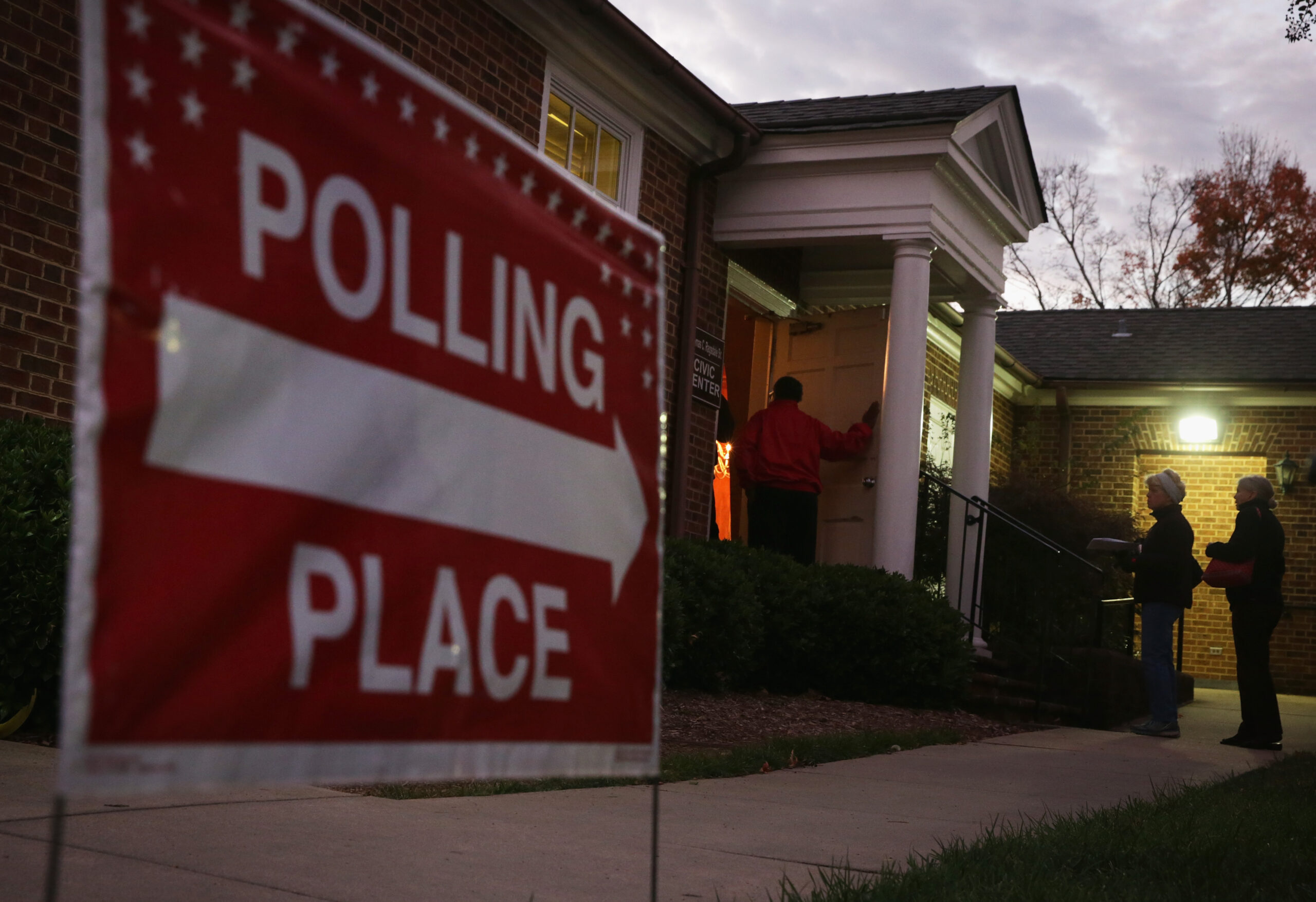In almost every way imaginable, economic justice is the essential issue in the nation’s midterm elections today. Not only are economic fairness issues such as the minimum wage literally being voted on in many states, but the depth of the nation’s economic malaise has turned this year’s race upside down.
Economic dissatisfaction has helped make Senate races in places with large communities of color such as Georgia and North Carolina competitive for more progressive candidates. And it’s placed governors with national aspirations such as Scott Walker of Wisconsin in jeopardy. Still its biggest impact will likely be on the depression of voter turnout this year. Voter cynicism about a lost economic decade might drive voter participation today to its lowest level in the nation’s history.
This shouldn’t come as a surprise.
As I have written before, despite the economic "good news" of recovery, the reality for most Americans is that they remain worse off than a decade ago. Wages are at a 40-year low, black and Latino wealth is the lowest on record, and the unemployment rate for those under 30 is twice as high as the official unemployment overall. The hard truth is that the country is still 18 million jobs short of where we need to be in order to declare the economy to be truly healthy.
And for communities of color this rugged economic terrain, when combined with the highest poverty rates in nearly three decades, means that it may be a generation before black and brown households return to the level of prosperity that existed before 2007.
There is some good news: The lack of movement at the national level to address these issues has shifted momentum back to the states this year. In fact four states–Alaska, Arkansas, Nebraska and South Dakota–have ballot initiatives to raise the minimum wage. There are also non-binding votes to do the same in Illinois and Wisconsin. Even cities are weighing in with voters in Oakland and San Francisco looking to pass hourly rates of $12.25 and $15 respectively.
Voters are behind these initiatives to such an extent that, as The New York Times reports, the business coalition which normally oppose them "has hardly put up a fight." In fact, the exasperated chairman of the Arkansas Club for Growth told The Times’ Steven Greenhouse, that the minimum wage is "going to pass whether I jump up and down or spend all my money." An increase in the minimum wage would be welcomed by women of color who make up the majority of those in the lowest of low-wage work.
The absence of a more progressive economic agenda has also shifted the calculus of Senate races in Southern states including North Carolina and Georgia. In both states Republican governors have passed laws that add to residents’ economic difficulty and decrease economic opportunity. Gov. Pat McCroy of North Carolina cut off unemployment benefits for nearly 200,000. And Gov. Nathan Deal of Georgia eliminated 62,000 students from that state’s higher education HOPE scholarship program even as he pushed through tax cuts for wealthy people.
Backlash against their policies has been real and consequential. In North Carolina, Rev. William Barber’s Moral Mondays may be why Democratic incumbent Kay Hagan might hold to her Senate seat in this tough year. A similar movement in Georgia has made that state’s Senate seat and its governor’s race competitive.
The backlash has also extended to Wisconsin where Governor Scott Walker, the Tea Party favorite and 2016 presidential hopeful, successfully took away the right of unions to bargain collectively for wages and benefits back in 2011. Although Walker survived protests that brought 100,000 people into the streets and sparked a 2012 recall effort, he seems to be in real trouble this year. His Democratic opponent, Mary Burke, is running on her private-sector economic experience using the slogan "Solving problems, not picking fights."
But beyond these noisy clashes over economic policy at the grassroots level, the most important impact of economics this year will likely be on voter turnout overall. According to the Pew Research Center fewer voters will turn out than in any midterm election since the first one back in 1790.
To be clear there is a general drop-off in all voters between presidential years. But as the Washington Post points out, three groups who will turn out far less than they did in 2012 are people of color, young people and single women. Consequently, Democrats might lose control of the Senate as well as seats in the House. "One of the things that seems to have handcuffed the Democrats this year in motivating these voters is that they say that the economy isn’t getting any better," pointed out CBS News’ Anthony Salvanto on "Charlie Rose" recently.
Salvanto also noted that not voting is in fact an active decision. What some call apathy could actually be a quiet, mass protest against the status quo. The decision to stay home on Election Day could easily be interpreted to be a vote for none of the above.
